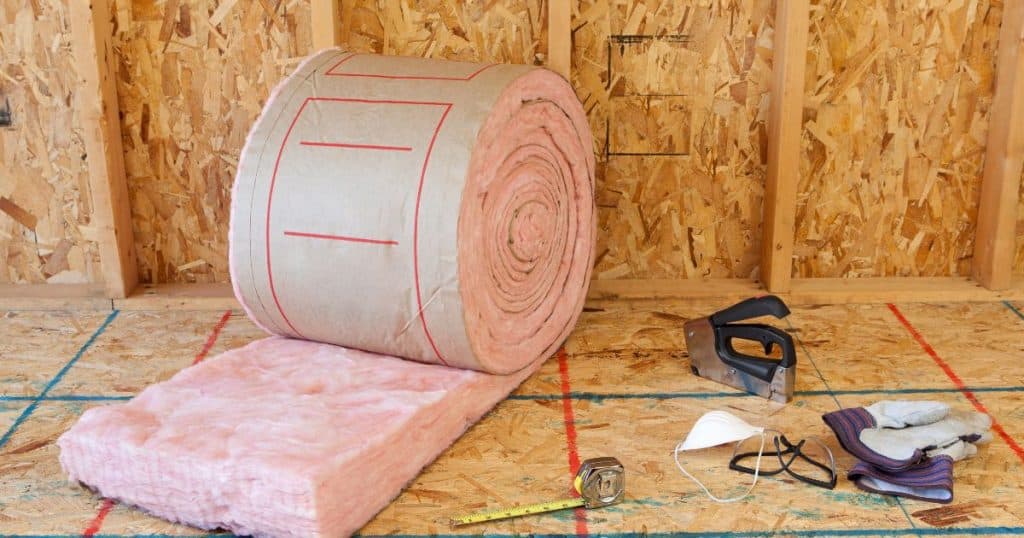Maintaining optimal temperature control is crucial for efficiency and safety in industrial settings. Energy-efficient insulation in industrial applications can significantly reduce energy consumption and operational costs. By investing in high-quality insulation, you enhance your facility’s energy performance and environmental impact.
One key benefit of effective insulation is its role in regulating temperature and reducing the strain on heating and cooling systems. This not only prolongs the lifespan of your equipment but also creates a more comfortable working environment for employees. Additionally, choosing the right insulation materials can lead to substantial savings over time, making it a wise financial decision.
As you consider improving your industrial operations, exploring insulation services should be a priority. Understanding the different types of insulation available and their specific benefits allows you to make informed choices that align with your goals for efficiency and sustainability.
Understanding Insulation in Industrial Settings

Effective insulation is crucial for industrial facilities, enhancing energy efficiency and ensuring optimal operational performance. This section will discuss the various insulation materials used in industrial settings and their advantages.
Types of Industrial Insulation Materials
Industrial insulation materials fall into several categories based on their properties and applications. Key types include:
- Fiberglass Insulation: Known for its thermal resistance and sound absorption, this material is lightweight and non-combustible.
- Mineral Wool: Besides being excellent for fire resistance, mineral wool also has soundproofing qualities, making it suitable for heavy machinery environments.
- Polystyrene: Both expanded (EPS) and extruded (XPS) forms of polystyrene provide robust thermal insulation and are often used in cold storage facilities.
- Foam Insulation: Spray foam options create an airtight seal, ideal for irregular surfaces or hard-to-reach areas.
Selecting the right material depending on your specific needs is pivotal for maximizing energy efficiency in industrial operations.
Benefits of Quality Insulation for Industrial Facilities
Incorporating quality insulation solutions in your Oklahoma City facility offers numerous benefits. Key advantages include:
- Energy Efficiency: Proper insulation minimizes heat loss or gain, significantly reducing energy consumption. This is especially relevant in areas like Oklahoma City, where climate control is essential.
- Cost Savings: Efficient insulation lowers energy bills, allowing you to allocate funds to other operational needs.
- Equipment Longevity: Insulation helps maintain optimal temperatures, reduces wear on machinery, and extends service life.
- Safety: Quality insulation materials can improve workplace safety by minimizing the risk of fire hazards and maintaining equipment integrity.
Energy-efficient insulation in industrial settings can enhance operational effectiveness and create a safer working environment.
Case Studies: Insulation Successes in Industrial Settings
Insulation services play a crucial role in enhancing operational efficiency within industrial environments. You can gain insights into successful strategies that bolstered energy savings and addressed unique insulation challenges by examining specific case studies.
Improving Energy Efficiency in Manufacturing Facilities
A leading manufacturing facility implemented industrial building insulation to combat excessive energy consumption. By installing high-performance insulation materials, this facility significantly reduced thermal loss. To further optimize energy savings and reduce operational costs, the facility also explored electric supplier rates Ohio, ensuring they partnered with the most cost-effective and reliable energy providers in the region.
Key results:
- Energy savings: 25% reduction in heating and cooling costs.
- Material used: Closed-cell spray foam, effective in preventing air leakage.
- Duration: Project completed within three weeks, minimizing downtime.
This focused insulation upgrade improved energy efficiency and contributed to a more stable internal environment, enhancing product quality and employee comfort.
Innovative Solutions to Insulation Challenges
Another notable case involved an industrial site with moisture intrusion issues. The company effectively created a moisture barrier using commercial insulation and industrial techniques.
Approach highlights:
- Custom solutions: Tailored insulation systems are designed to fit unique building structures.
- Materials employed: Vapor barrier membranes combined with rigid board insulation for optimal performance.
- Outcome: Reduced mold growth and associated maintenance costs by 40%.
This innovative solution demonstrated that strategic insulation choices could address complex environmental challenges, ensuring the longevity of both the structure and the equipment housed within.
Selecting the Right Insulation Services

Choosing the appropriate insulation services is crucial for industrial settings. Factors such as the contractor’s qualifications, adherence to industry standards, and best practices significantly ensure efficient and effective insulation.
Criteria for Choosing an Insulation Contractor
When selecting an industrial insulation contractor, consider their experience in the field. Look for a contractor with a proven track record in factory insulation services. Verify their qualifications, including licenses and certifications relevant to insulation.
Evaluate their expertise in handling specific insulation materials that suit your needs, such as fiberglass, foam, or mineral wool—request references from previous clients to assess their reliability and quality of work. Finally, review their safety practices. A contractor who prioritizes safety protocols helps protect your workers and your facility.
Industry Standards and Best Practices
Familiarize yourself with industry standards related to insulation, such as ASTM and OSHA guidelines. Compliance with these standards ensures safety, efficiency, and performance in your insulation projects.
Additionally, understand the thermal performance metrics you want to achieve. This includes R-value ratings for different insulation types, which measure heat resistance. Quality insulation enhances energy efficiency, mitigates noise, and improves working conditions.
Effective insulation can significantly impact operational costs and energy savings. Therefore, ensure that your chosen contractor follows best installation, maintenance, and material selection practices for optimal results.
For help with pest or wildlife issues during your insulation projects, consider contacting Critter Stop at (405) 645-5450 for a free inspection. Their commitment to quality work and customer satisfaction is well-reviewed, ensuring your property’s safety from unwanted animals.